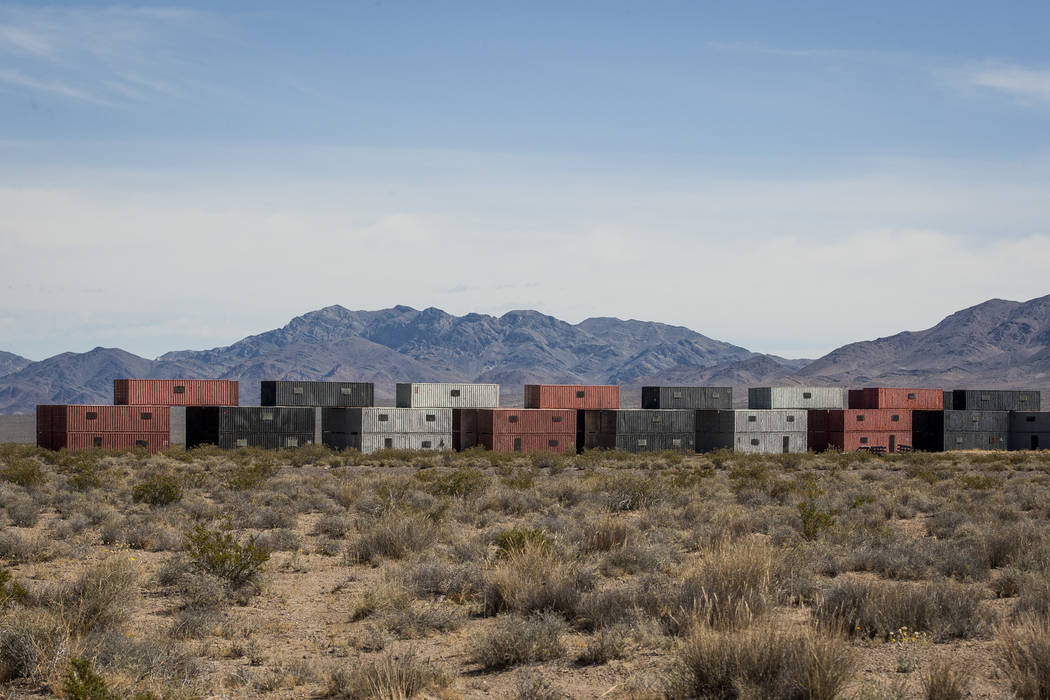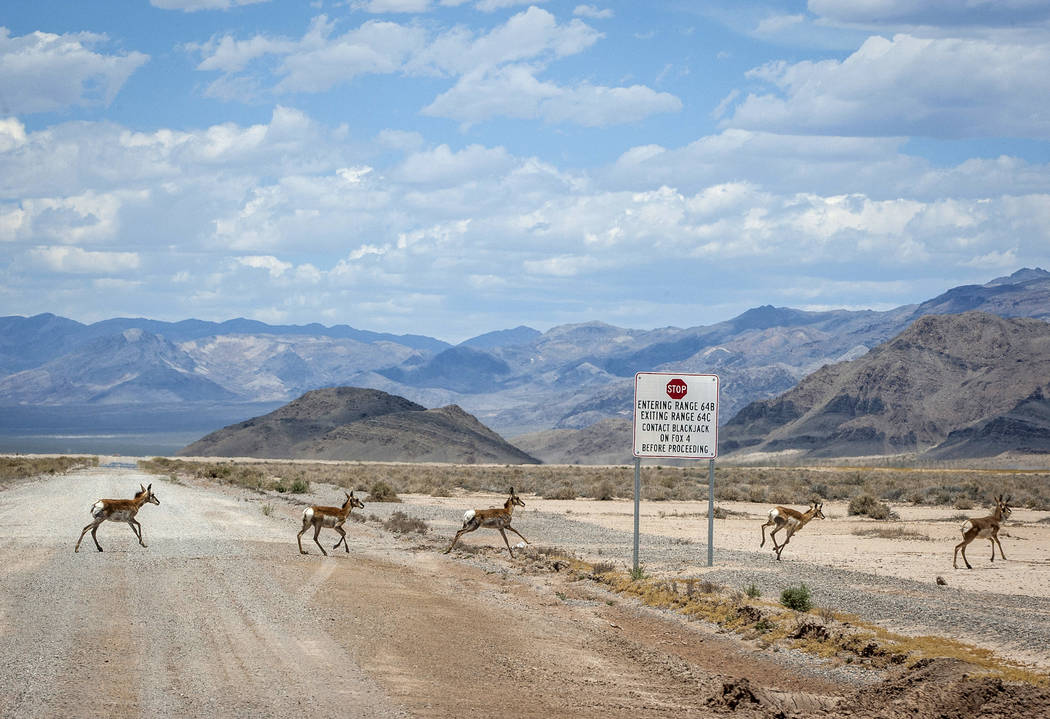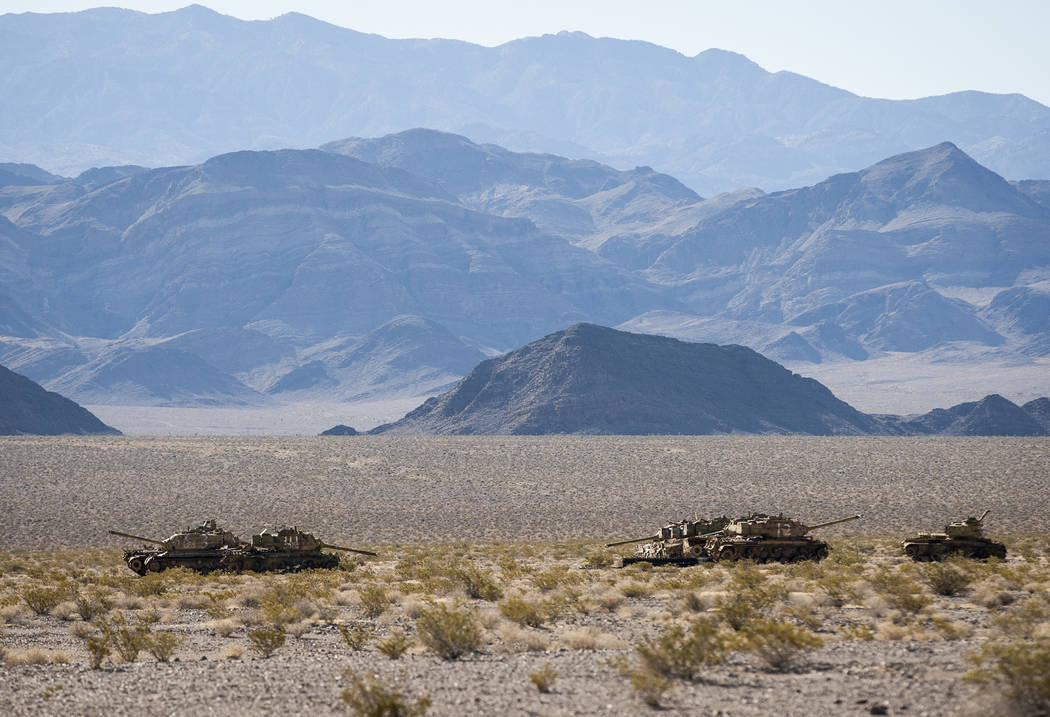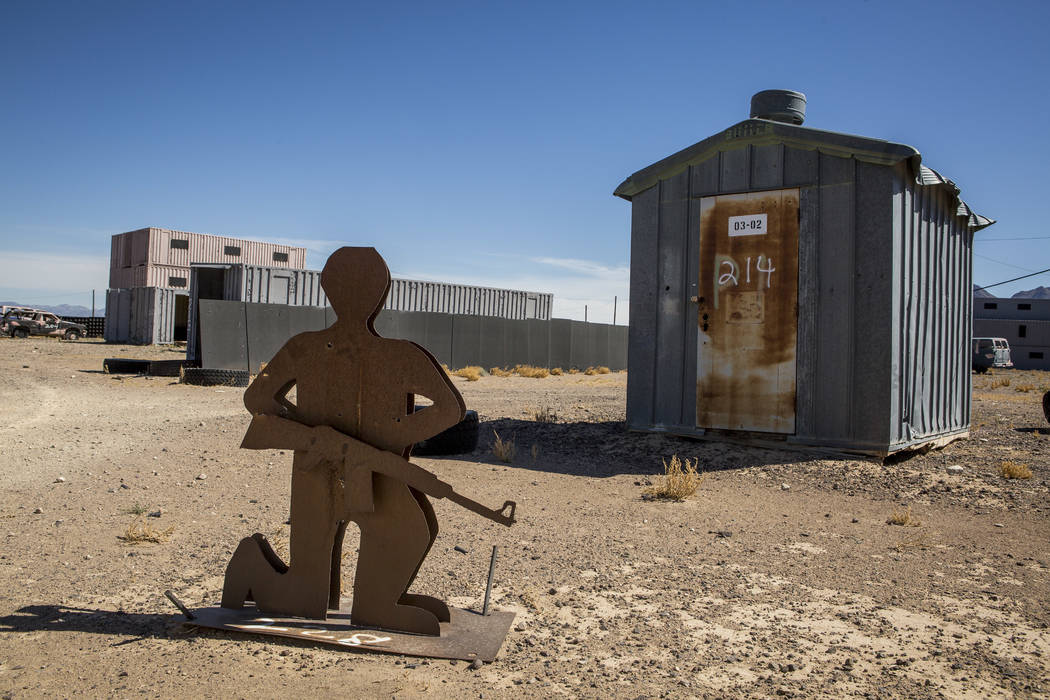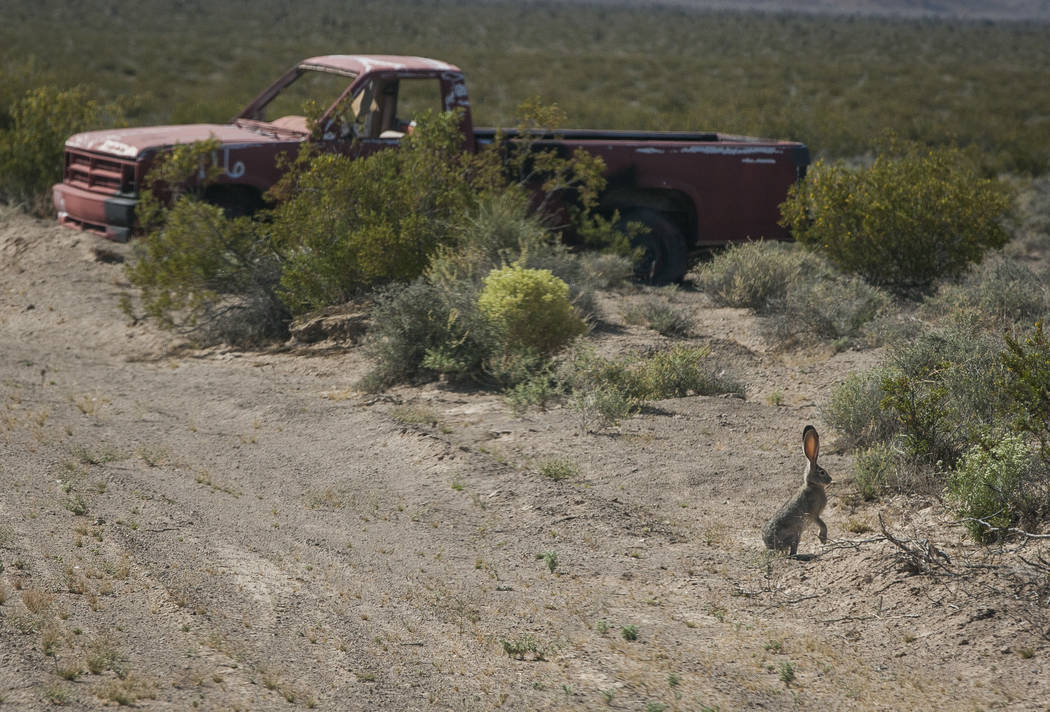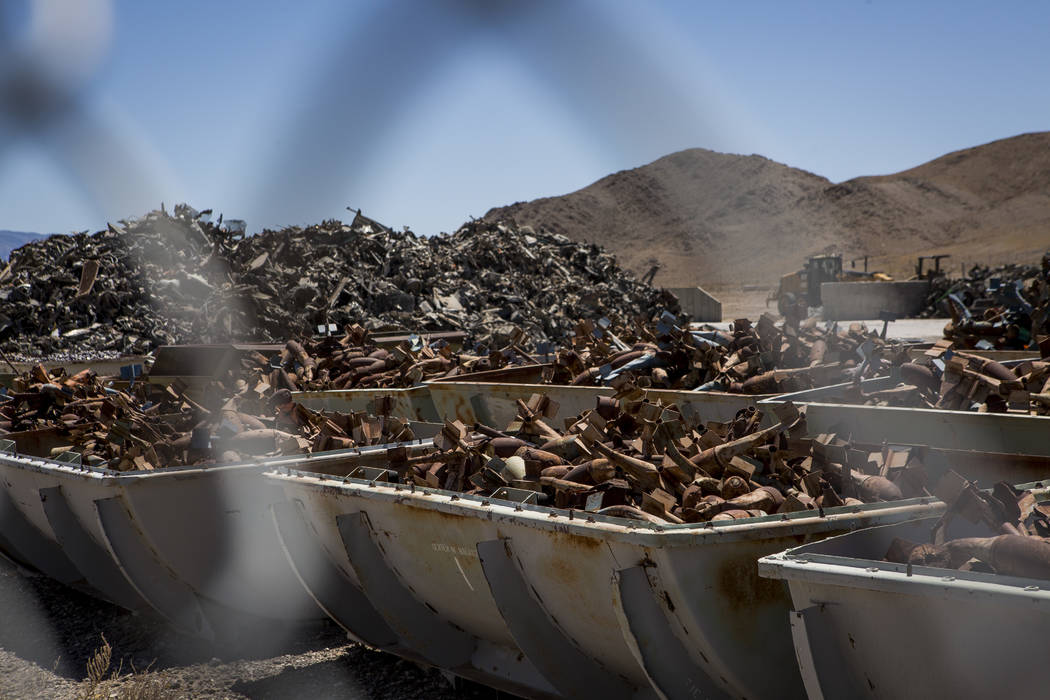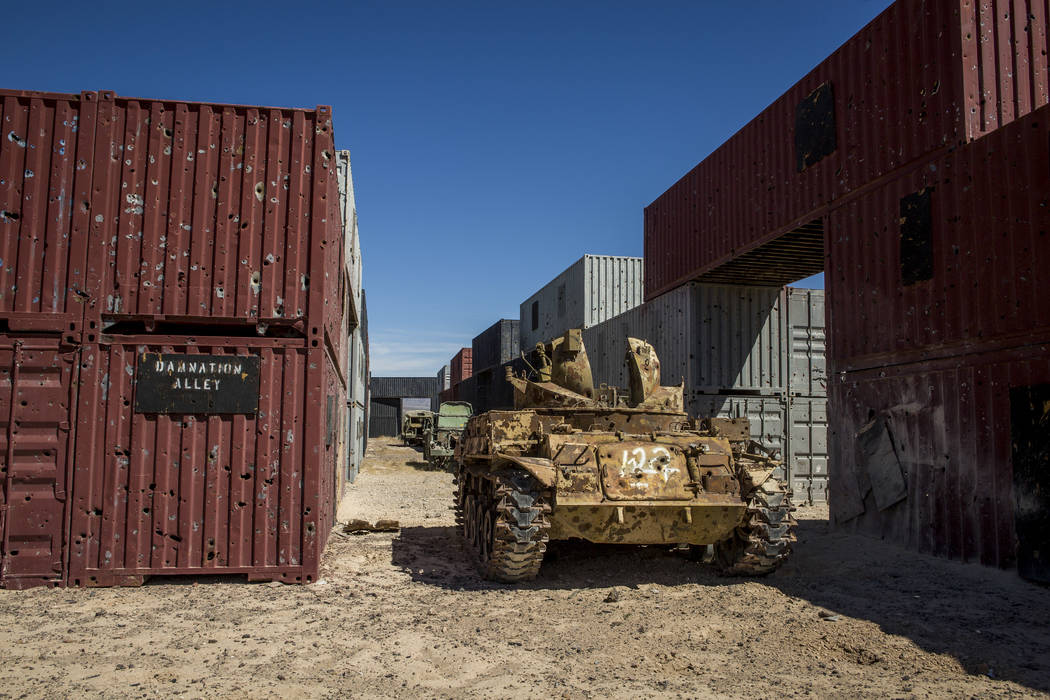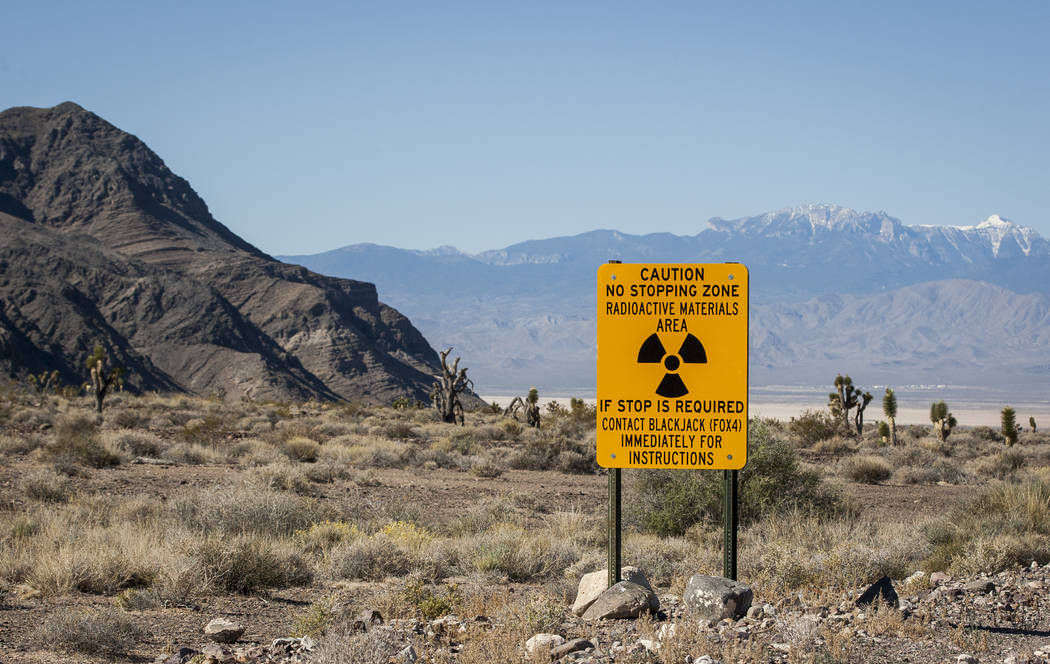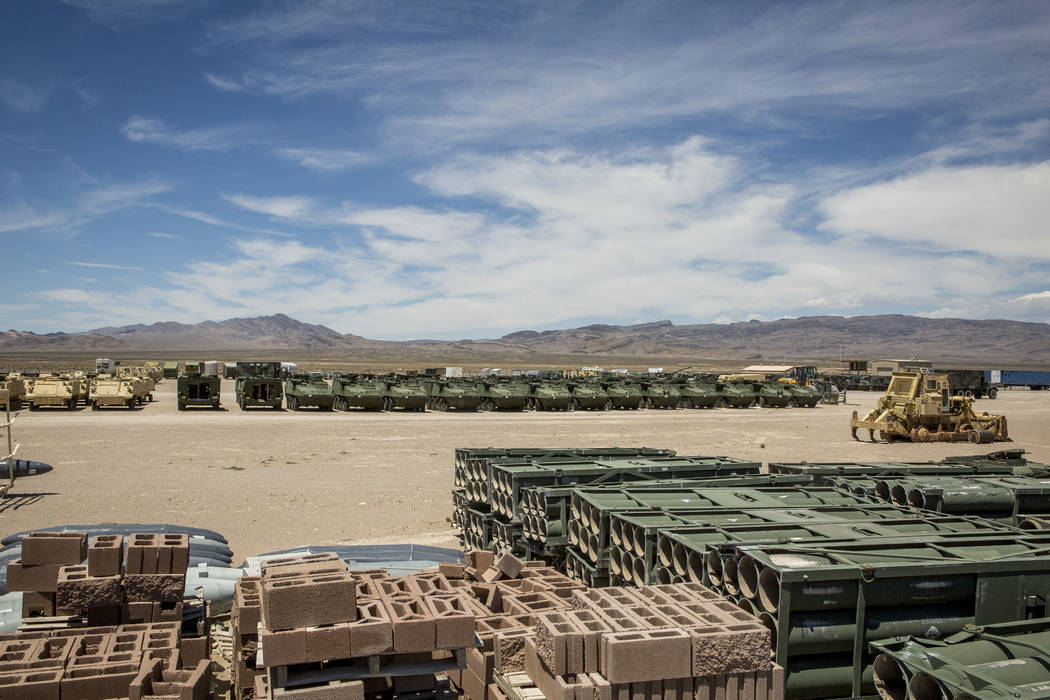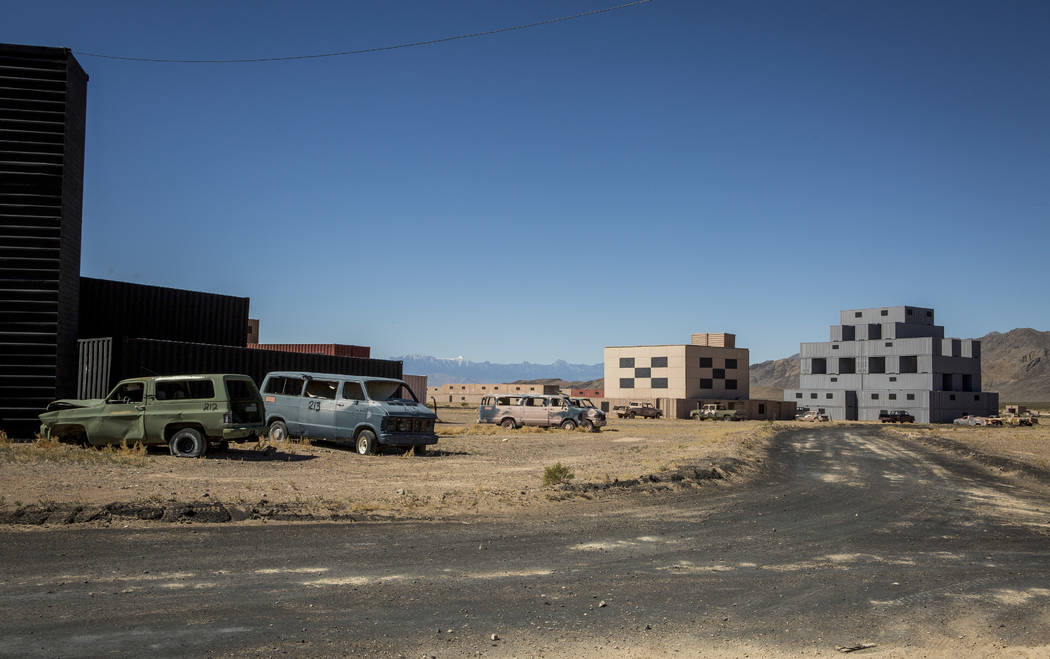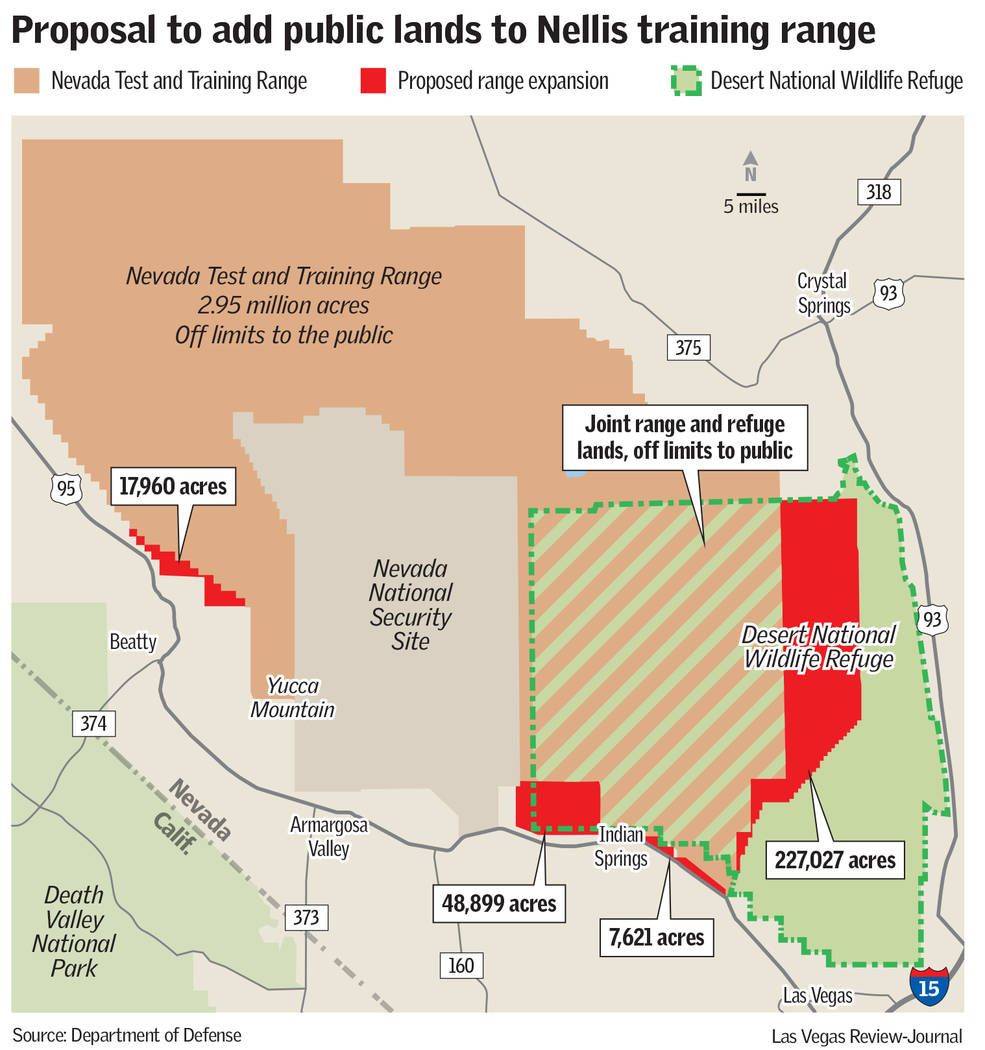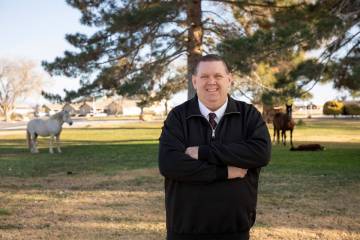Air Force finalizes plan to take big bite of Nevada wildlife refuge
Just in time for the recent National Wildlife Refuge Week, the Air Force has unveiled its final plan to block public access to about 277,000 acres of Nevada’s largest refuge, 30 miles northwest of Las Vegas.
The final legislative environmental impact statement, now available online, details the expansion of the 2.9 million-acre Nevada Test and Training Range through the carving out of more of the Desert National Wildlife Refuge, roughly half of which is already under military control.
The document was posted to the internet Oct. 17, but its release has yet to be formally announced in the Federal Register.
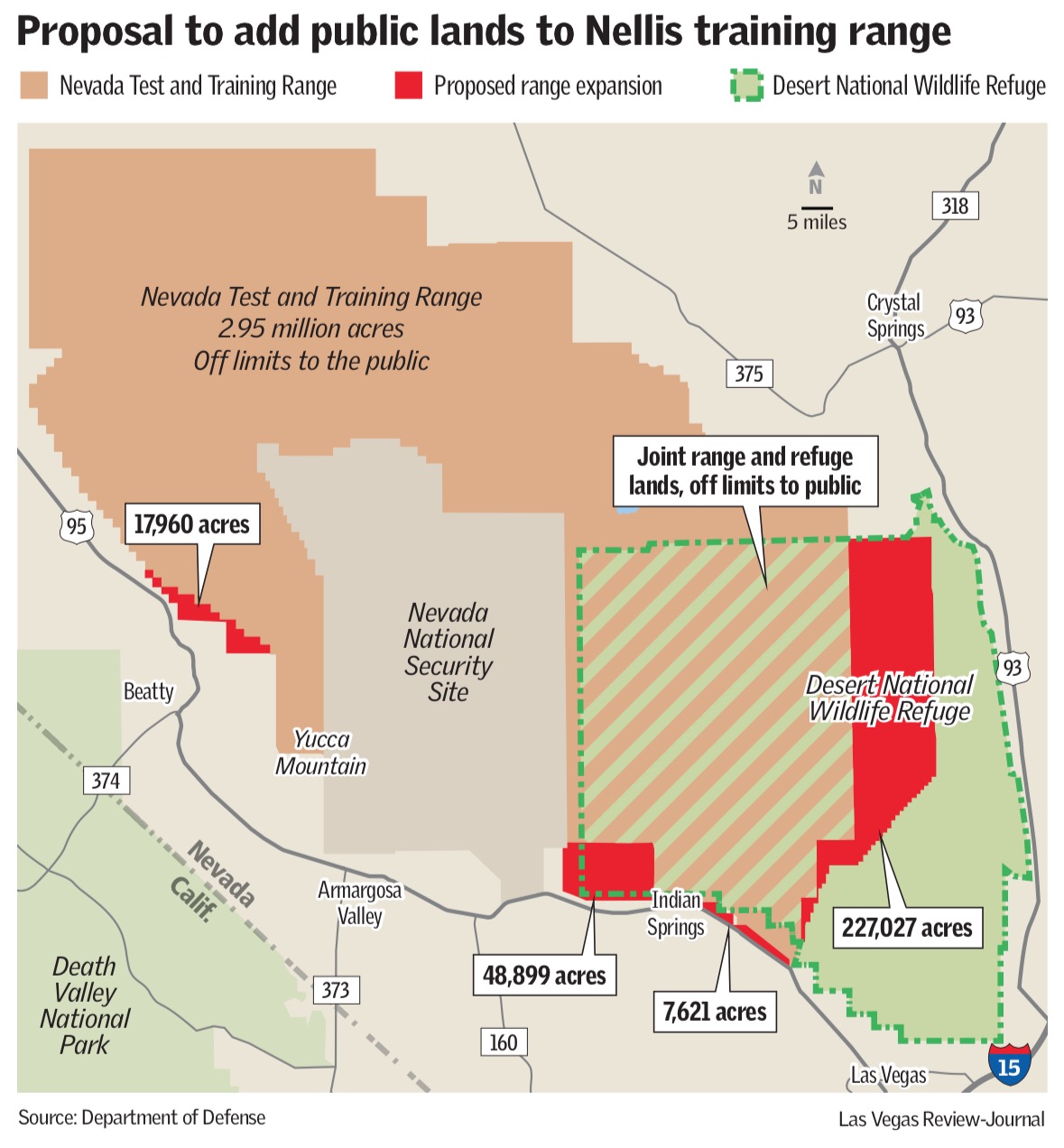
Air Force officials want the additional land to increase the range’s training capacity and enable more realistic combat exercises featuring the latest military aircraft and enemy countermeasures.
The plan, which requires congressional approval, would add more than 301,000 acres to the secure military proving ground in Clark, Lincoln and Nye counties.
Most of the expansion targets the Sheep Mountains, which were set aside as a wildlife refuge in 1936 to protect desert bighorn sheep.
Environmentalists, hunters, off-road enthusiasts and tribal groups have all come out against the idea, which they say will endanger wildlife, cut off access to public land and hurt rural recreation economies. The U.S. Fish and Wildlife Service has also raised concerns about the proposal.
Officials from the Fish and Wildlife Service and the Air Force did not respond to requests for comment.
On its website, the service declares Oct. 14-20 as National Wildlife Refuge Week to “celebrate the great network of lands and waters that conserves and protects Americans’ precious wildlife heritage.”
Local conservationist Jose Witt said it was adding “insult to injury” for the Air Force to release its final environmental review when it did. Trying to slash the size of the largest refuge in the lower 48 states seems like “kind of an odd way to celebrate,” said Witt, who serves as Southern Nevada director for Friends of Nevada Wilderness, one of several conservation groups that oppose the range expansion.
Witt also wasn’t quite sure what to make of the newly released environmental review.
“This document doesn’t indicate a proposed action, so we’re anxiously waiting to see what that says,” Witt said. “We’re concerned that they are not going to take into account the 32,000 comments they got against the proposal.”
The Air Force is also seeking to extend the military’s hold on all the land previously withdrawn from public use for the test range under a congressional decree last renewed in 1999. At the same time, the Air Force wants sole control of an 846,000-acre portion of the range that already overlaps the refuge and has been off-limits to the public for years.
By gaining sole control of that land and erasing thousands of acres of proposed wilderness there, the Air Force would have the “ready access” it needs to conduct exercises across the southern half of the test and training range.
No new bomb impact areas are planned, but the Air Force wants to build two new runways, one for takeoffs and landings, the other a training “mock-up.”
Witt said he doesn’t expect the Air Force to conduct more public meetings or collect more comments from stakeholders with the release of the final environmental review.
The matter will now be in the hands of Congress, which is expected to take action by 2021, when the current land withdrawal for the test and training range is set to expire.
Contact Henry Brean at hbrean@reviewjournal.com or 702-383-0350. Follow @RefriedBrean on Twitter.


